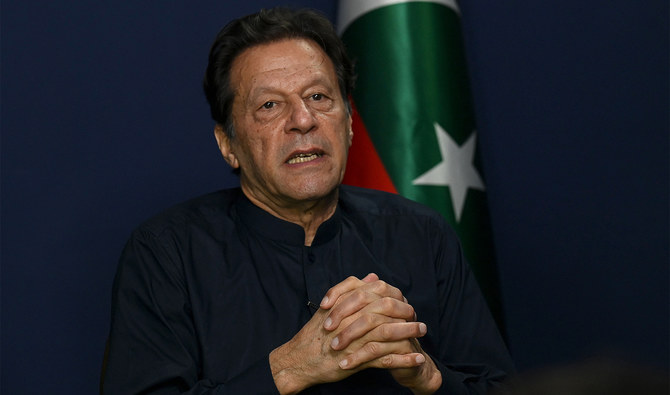ISLAMABAD: A Pakistani court on Tuesday handed former prime minister Imran Khan and his close aide Shah Mahmood Qureshi a ten-year jail term each in a case in which they are accused of leaking state secrets, with his party saying it would appeal the verdict which comes less than two weeks before general elections.
Khan and most senior leaders of his Pakistan Tehreek-e-Insaf party (PTI) have been rejected as candidates for the February 8 vote in what they say is a campaign by the military-led establishment to thwart their participation. The army says it does not interfere in political affairs.
This particular case, popularly called the “cipher case,” relates to an alleged diplomatic correspondence between Washington and Islamabad that Khan says was proof that his ouster as PM was part of a US conspiracy to remove him. Washington has repeatedly denied Khan’s accusations.
According to the police complaint against Khan and Qureshi, who was Khan’s foreign minister during his tenure from 2018-22, both are accused of leaking state secrets to unauthorized individuals by publicly disclosing the contents of the confidential diplomatic cable and distorting facts “with ulterior motives and for personal gains.” These actions, authorities say, had jeopardized the Pakistani state’s security interests.
A special court established to hear the case had been conducting the trial inside the Adiala prison in Rawalpindi for weeks where it concluded cross examination of all 25 witnesses late on Monday night. Khan is currently serving a three-year jail term in another case at Adiala and faces dozens of cases since he was ousted from power in a parliamentary vote of no confidence in 2022. Charges range from terrorism to attempted murder.
“Pakistan stands with Imran Khan and Shah Mahmood Qureshi, who defended Pakistan,” the PTI said in an X post after the special court verdict.
“A complete mockery and disregard of law in the cipher case shall not lead us to forget our primary responsibility in order to provide justice to IK and SMQ: vote and protect your vote on [February] 8th ... This sentence will be in dustbin in appeal stage.”
Khan and Qureshi were indicted in the case on Dec. 13. After Tuesday’s verdict, his party said it would challenge the judgment in the Islamabad High Court after getting a certified copy of the verdict from the special court.
“We will be challenging it [the verdict] hopefully tomorrow [Wednesday] if we get the judgment copy today,” Khan’s lawyer Barrister Ali Zafar told Arab News. “We hope this judgment will be set aside by the high court due to legal lacunae.”
Khan, 71, was ousted in April 2022 after falling out with Pakistan’s powerful military leaders who are widely believed to have backed him into power in 2018. In opposition, he waged an unprecedented campaign of defiance against the military establishment which has directly ruled the nation for almost half of its history.
Khan accused them of engineering his removal from office in a no-confidence vote via a US-backed conspiracy, and of plotting an assassination attempt that saw him wounded. The army denies both charges.
After Khan’s brief detention in May sparked unrest, the PTI has been the subject of a widespread crackdown, with leading figures either jailed or forced to leave the party.



















